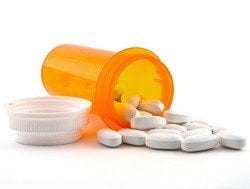
We know it’s not easy to navigate through post-trauma pain from an accident and we want you to have the best information to help you recover. The highly-respected Consumer Reports organization has a great article out this month which covers both prescription and non-prescription pain relief medications. The article discusses effectiveness and potential side-effects and danger from these drugs.
On average, 46 people die each day as a result of pain medication, and this includes over-the-counter (OTC) medications. In fact, acetaminophen (generally known as Tylenol) is a liver toxin which can kill in high doses. What’s a high dose? That depends on whether you are taking a prescription form or an over-the-counter pill. Shockingly, prescription doses are lower.
In March the FDA set a new recommended safe and effective single dose of 325mg for acetaminophen. But we note that the labeling for regular-strength OTC products suggests you take two of those 325mg-tablets each time, and there are still “extra-strength” formulas on the market!
Here’s another discrepancy—while the FDA recommends that safe 325mg dose, which you take say, six times a day, or 1,950 mg per day, the FDA also sets a maximum daily safe amount of 4,000 mg per day, or more than twice their own recommendation. It should be noted that some OTC labels have lower maximums listed which may be from 25-75% of the FDA limit. It is unclear why there is no clear consensus on the safe daily amount.
Many OTC preparations such as cough syrup, allergy pills, and cold remedies, contain some amount of acetaminophen—so either add up how much you are getting from each, or limit your use of these meds. Be especially careful if you are giving these meds to your child!
Another concern for acetaminophen overdose and liver failure comes from mixed pills which include narcotics. These are far more prone to over-use than the Tylenol you take for an occasional headache. Drugs in this group include Percocet, Oxicet, and Roxicet as well as others.
Recent studies indicate that opiates are less effective and more addicting than previously thought. If you have been taking opiates such as Oxycontin, MS Contin, Opana, Exalgo, or Zohydro ER beyond short-term post-injury or post-surgery use, and need long-term pain management, you can get better relief with other meds and other strategies.
Remember, “slow-release” drugs, are no better or less addicting than the regular formulas of the same narcotics.
Equally important while using any of these drugs we have discussed is avoiding alcohol! Alcohol is a stressor to the liver, and when used with narcotics alcohol has a dangerous multiplier effect, increasing your already-compromised ability to focus and function which is caused by narcotic use.
As an alternative, try using NSAIDs such as ibuprofen or naproxen, but be aware that these too have side effects and should not be used on a constant basis. Overuse of these drugs can cause damage to your digestive system. If you have pain there are alternatives to drug therapies:
1. Glucosamine chondroitin supplements: A supplement for joint and arthritic pain which helps preserve the joint (and also works for aging pets in veterinary formulae).
2. Turmeric: A powerful anti-inflammatory without the side effects of NSAIDs
3. Vitamin D: In D3 supplement form or in sun exposure, reduces inflammation.
4. Stretching, best in a supportive group such as Tai Chi or yoga, once you are able.
5. Protect your back by strengthening and moving correctly.
6. Eliminate inflammatory foods: Cut out sugar, and reduce or eliminate gluten. Avoid breakfast cereals and have eggs instead.
7. Quit smoking! At Stillman & Friedland we care about you!
We offer this information as service because we know your health and recovery is enhanced by being informed.
Call Jay or Mike at (615) 244-2111 or email jay@jstillman.com
* This blog entry should not be construed as medical advice or treatment for any specific person or condition. Only a licensed medical professional can properly diagnose and treat psychological and/or physical conditions. If you have any question regarding your mental or physical health, please consult with your healthcare provider.






